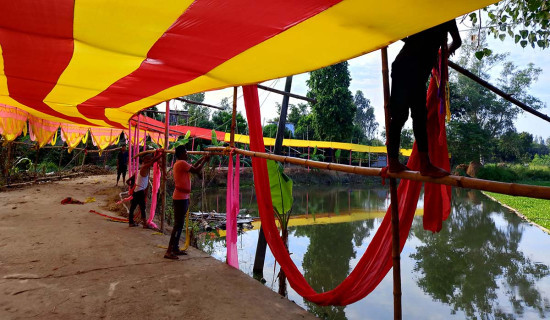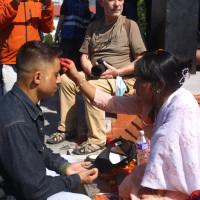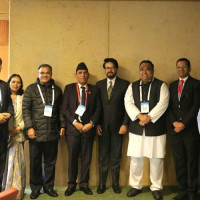- Friday, 24 October 2025
Dengue cases surge in Banke district
By Our Correspondent,Nepalgunj, July 2: Banke District faces a heightened risk of dengue fever. Health experts warned about a potential dengue outbreak in the district due to a lack of awareness about dengue prevention measures.
According to the District Public Health Office, Banke, cases of dengue infection have been reported in every municipality of the district.
If not controlled promptly, there is growing concern that the disease may spread further. Durga Gautam, dengue focal person at Banke Health Office, said that 405 cases of dengue fever have been recorded in Banke district in the current fiscal year.
According to him, currently, there are five dengue patients in Rapti Sonari Rural Municipality, 24 in Kohalpur Municipality, nine in Baijnath Rural Municipality, four in Khajura Rural Municipality, five in Janaki Rural Municipality, 45 in Nepalgunj Sub-Metropolitan City and six in Duduwa Rural Municipality.
Gautam warned that the district is at high risk of a dengue outbreak, stating that failure to control it could lead to dire consequences. He stressed the urgent need to enhance border surveillance as a crucial measure to prevent the spread of the disease.
Angad Bahadur Shahi, Head of the Health Office, Banke, highlighted that the period from July to November is considered the peak season for dengue outbreaks.
He stressed the importance of intensifying preventive campaigns to control the dengue outbreak. He explained that mosquitoes carrying dengue virus can infect approximately four to five people simultaneously. Additionally, he reported that Nepal has recorded 1,268 dengue cases in the last six months alone.
Shahi said that the efforts of the Health Office alone were insufficient to control the dengue outbreak. He stressed the necessity for collaborative efforts involving all agencies across the district to effectively mitigate the risk.
Chief District Officer of Banke, Khagendra Prasad Rijal, has instructed to launch a clean-up campaign across all public places and offices in the district to combat the dengue outbreak.
Rijal said that the most effective approach to control the rapid spread of dengue is through locating and eliminating the breeding grounds of the mosquito larvae. Therefore, citizens themselves should actively clean the areas around their houses where water accumulates.
Dengue is an infectious disease transmitted by the bite of female mosquitoes belonging to the species Aedes aegypti and Aedes albopictus, which are infected with the virus. These mosquitoes are commonly known as tiger mosquitoes. Dengue can affect individuals of any age group.

















